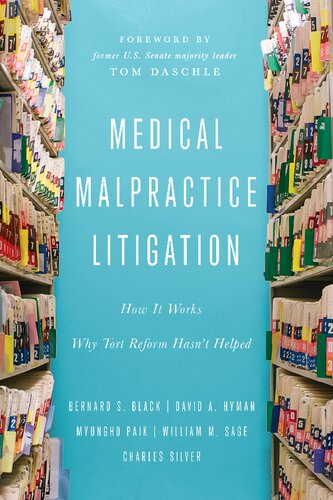

Most ebook files are in PDF format, so you can easily read them using various software such as Foxit Reader or directly on the Google Chrome browser.
Some ebook files are released by publishers in other formats such as .awz, .mobi, .epub, .fb2, etc. You may need to install specific software to read these formats on mobile/PC, such as Calibre.
Please read the tutorial at this link: https://ebookbell.com/faq
We offer FREE conversion to the popular formats you request; however, this may take some time. Therefore, right after payment, please email us, and we will try to provide the service as quickly as possible.
For some exceptional file formats or broken links (if any), please refrain from opening any disputes. Instead, email us first, and we will try to assist within a maximum of 6 hours.
EbookBell Team

5.0
40 reviewsOver the past 50 years, the United States experienced three major medical malpractice (med mal) crises, each marked by dramatic increases in the cost of malpractice liability insurance. These crises fostered a vigorous politicized debate about the causes of the premium spikes, and the impact on access to care and defensive medicine. State legislatures responded to the premium spikes by enacting damages caps on non-economic, punitive, or total damages and Congress has periodically debated the merits of a federal cap on damages.
However, the intense political debate has been marked by a shortage of evidence, as well as misstatements and overclaiming. The public is confused about answers to some basic questions. What caused the premium spikes? What effect did tort reform actually have? Did tort reform reduce frivolous litigation? Did tort reform actually improve access to health care or reduce defensive medicine? Both sides in the debate have strong opinions about these matters, but their positions are mostly talking points or are based on anecdotes.
This book provides factual answers to these and other questions about the performance of the med mal system. The authors, all experts in the field and from across the political spectrum, provide an accessible, fact-based response to the questions ordinary Americans and policymakers have about the performance of the med mal litigation system.